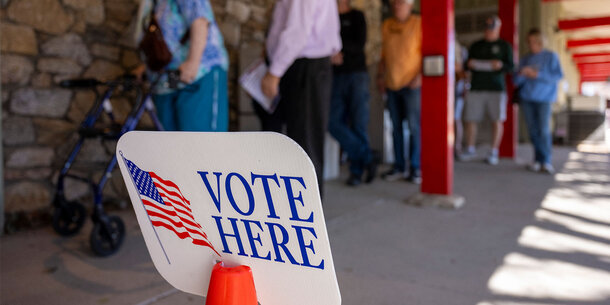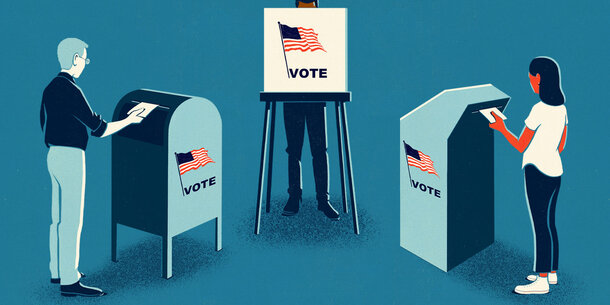Over the past few months, the drive to allow partisan sabotage of the election process had a series of frightening public successes. The Arizona State Senate concluded its partisan review of the 2020 election in Maricopa County, a nakedly political bid to feed disinformation and conspiracy theories. The Georgia legislature passed a bill along party lines to remove the elected secretary of state — who stood up to requests to overturn the 2020 election results — as chair of the State Elections Board and replace him with a hand-picked chairperson. In Texas, the governor signed a law that targets local election officials and poll workers with new penalties, empowers partisan poll watchers, and cuts down on access to voting. The Texas secretary of state also announced a dubious election review, the day after former President Donald Trump urged it. And in states like Missouri and Oklahoma, legislators introduced even more extreme bills that would have allowed them to directly overturn legitimate election results. While these bills did not pass, their mere introduction is a shocking affront to democratic norms.
Following a legislative season that saw many states increase barriers to voting, these laws and proposals, often added quietly and late in the legislative process, would change who runs elections, who counts the votes, and how. They go beyond vote suppression to enable direct election subversion. And they have a distinctly authoritarian flavor. Joseph Stalin put it pungently: “I consider it completely unimportant who in the party will vote, or how; but what is extraordinarily important is this — who will count the votes, and how.”
Legislation enabling partisan interference in election administration is part of a broader “election sabotage” or “election subversion” campaign, a national push to enable partisans to distort democratic outcomes.footnote1_z2s7qsT7XPlLpP7srBvNE43-NfG0AeuWdNngeDuY_p5OL1K7jOUM51The election subversion trend has been well documented in several other reports in recent months. The States United Democracy Center, Protect Democracy, and Law Forward published a report describing elements of the trend and analyzing important bills to counter it. Another recent report by the Voting Rights Lab built upon this research and linked these bills to other developments. And an analysis by the Center for American Progress looked at particularly troubling subversive legislation in Arizona, Florida, Georgia, and Texas. It includes partisan reviews of vote tallies to justify overturning election results and enacting new laws to subvert fair elections in a growing number of states. It includes attacks and pressure on state and local election officials to subvert fair election rules or election outcomes. It includes the unprecedented push in the states to restrict access to voting. And finally, it includes a movement by majority parties in multiple state legislatures to entrench themselves in power through extreme gerrymandering and other discriminatory tactics — an effort that could distort our democracy for the next decade, just as maps drawn with partisan bias after the 2010 Census skewed elections in 2012, 2014, 2016, 2018, and 2020.
While the partisan sabotage bills have not been enacted into law at the same pace as vote suppression bills, they are a new and dangerous twist on the same legislative agenda. Each is driven by the Big Lie that there is widespread voter fraud. And each is part of a broader ongoing partisan project to thwart democratic elections and rig electoral outcomes, especially by undermining or canceling the votes of people of color. Each is antidemocratic and toxic to a free and fair society. And each demands urgent intervention by Congress to prevent irreparable corruption of our electoral system.
This paper briefly catalogs recent election sabotage legislation and the status of those efforts and explains how they threaten our democratic system. Specifically, there are four categories of legislation to sabotage the electoral process: (1) legislation to give state officials the power to change or reject election results; (2) legislation to give partisan state officials the power to seize control of the election administration and vote-counting processes; (3) legislation to restrict, control, or punish the conduct of local election officials; and (4) legislation to make it harder to vote.
The paper then details the most significant legislative solution: the Freedom to Vote Act (FTVA), a transformative voting rights and democracy reform bill that would thwart most election sabotage efforts. The Freedom to Vote Act includes provisions targeted at specific election sabotage threats. But its core voting rights provisions would also defang election sabotage laws. By establishing clear, enforceable national standards on issues such as early voting, vote by mail, and the counting of ballots, the Freedom to Vote Act would deprive partisans of the discretion to suppress or discard legitimate votes. It would also deprive partisans of the raw material that underlies their phony claims of fraud whenever marginalized communities are given fair access to the ballot. Partisan election boards, for example, could not claim that counties had improperly allowed people to vote by mail if they were merely following unambiguous federal requirements. The same is true for vote-counting standards. Congress must act quickly and decisively to blunt the election sabotage scheme before it gathers more momentum at the state level.
End Notes
-
footnote1_z2s7qsT7XPlLpP7srBvNE43-NfG0AeuWdNngeDuY_p5OL1K7jOUM5
1
The election subversion trend has been well documented in several other reports in recent months. The States United Democracy Center, Protect Democracy, and Law Forward published a report describing elements of the trend and analyzing important bills to counter it. Another recent report by the Voting Rights Lab built upon this research and linked these bills to other developments. And an analysis by the Center for American Progress looked at particularly troubling subversive legislation in Arizona, Florida, Georgia, and Texas.








